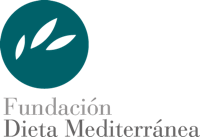October 16th is World Food Day. In Spain, food consumption habits are based on the Mediterranean Diet. However, in intake of processed foods has tripled in recent years in our country, leaving our Mediterranean Diet aside.
Within the framework of World Food day, the Mediterranean Diet Foundation wants to remind every that the Mediterranean Diet is a lifestyle, not just a food pattern that combines ingredients of local agriculture, recipes and traditional cooking methods, shared meals, celebrations and traditions, which together with moderate physical activitivy favoured by a benign climate completes this lifestyle that modern science invites us to adopt for the benefit of our health, making it an excellent, healthy lifestyle.
The Mediterranean Diet is a valuable cultural heritage, which from simplicity and variety has resulted in a balanced and complete combination food, based on fresh, local and seasonal products whenever possible. It is characterized by an abundance of plant origin food, such as bread, pasta, rice, fruits and vegetables, legumes and nuts; the use of olive oil as the main source of fat; moderate consumption of fish, shellfish, poultry, dairy products and eggs; the consumption of small amounts of red meat and wine in moderation during meals. Its importance in health is not limited to the fact that it is a varied and balanced diet with an appropriate supply of macronutrients, but also its low content of saturated fatty acids and high content of monounsaturated fatty acids, as well as complex carbohydrates and fiber and its richness in antioxidants.
The Mediterranean Diet has been recognized by the FAO and WHO as the healthiest of diets. However, the adherence to the traditional Mediterranean Diet pattern reveals a progressive abandonment due to the influence of new, unhealthy eating and lifestyle habits, which have already impacted negatively in Mediterranean countries. Obesity is considered the epidemic of the 21st century, especially among children, and cardiovascular disease remains the leading cause of mortality. Metabolic syndrome and diabetes mellitus are now a global problem in developed countries. These facts seem to run parallel to the abandonment of the traditional Mediterranean Diet habits. Avoiding its gradual abandonment will have a favourable impact both in terms of the regression of the above described diseases as well as the conservation of traditional agriculture and landscapes; the environment. Like we said, we’re better with the Mediterranean Diet.




